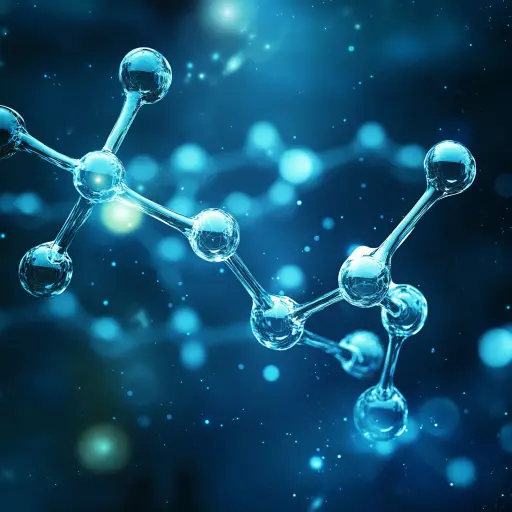Liver Issues Can Lead to a Constant Feeling of Tiredness
Feeling constantly tired and low on energy can significantly affect one’s quality of life. While there are many potential causes of chronic fatigue, liver dysfunction is a critical but often overlooked factor. Liver health impacts directly the energy level. Nutrient deficiencies in choline, inositol, methionine, and taurine contribute to liver problems and may result beside others also in mild to severe fatigue.
The liver is a powerhouse of metabolic activity, playing a central role in energy production and overall metabolic health. It processes nutrients from the food we eat, converts them into energy, and stores glucose for future use. When liver function is impaired, these processes are disrupted, leading to a persistent feeling of tiredness.
Key Functions of the Liver:
- Glucose Regulation: The liver stores and releases glucose as needed to maintain stable blood sugar levels.
- Nutrient Metabolism: It processes fats, proteins, and carbohydrates, converting them into usable energy.
- Detoxification: The liver detoxifies harmful substances, preventing them from accumulating and causing damage.
When the liver is not functioning optimally, several metabolic processes are affected, leading to low energy levels:
- Impaired Glucose Storage and Release: Disruption in glucose metabolism can lead to unstable blood sugar levels, resulting in fatigue.
- Reduced Detoxification: Accumulation of toxins in the body can cause systemic inflammation and oxidative stress, contributing to tiredness.
- Inefficient Nutrient Metabolism: Poor processing of fats, proteins, and carbohydrates reduces the availability of energy for the body’s needs.
Key Nutrients for Liver Health and Energy
Choline:
- Function: Essential for lipid metabolism and liver function.
- Deficiency Impact: Leads to fat accumulation in the liver (hepatic steatosis) and impairs energy production due to disrupted glucose metabolism.
Inositol:
- Function: Important for cell membrane integrity, lipid metabolism and cell signaling.
- Deficiency Impact: Disrupts cell signaling and energy metabolism, contributing to fatigue.
Methionine:
- Function: Crucial for methylation reactions and detoxification processes.
- Deficiency Impact: Impairs liver detoxification, leading to a buildup of toxins and reduced energy levels.
Taurine:
- Function: Supports bile salt formation, crucial for fat digestion and detoxification.
- Deficiency Impact: Increases oxidative stress, reduces bile production, impairing fat digestion and energy metabolism.
The interconnection between liver dysfunction and low energy levels highlights broader health implications:
Chronic Fatigue – Persistent tiredness affects daily functioning and quality of life.
Metabolic Disorders– Poor liver function can lead to metabolic syndrome, characterized by obesity, insulin resistance, and dyslipidemia.
Systemic Inflammation– Accumulation of toxins due to impaired liver detoxification can cause chronic inflammation, further exacerbating fatigue.
Addressing nutrient deficiencies in supporting liver health are crucial steps in managing chronic fatigue:
Dietary Adjustments– Ensure adequate intake of choline, inositol, methionine, and taurine through a balanced diet and supplementation.
Regular Exercise– Physical activity helps improve liver function and overall energy metabolism.
Limit Alcohol and Toxins– Reducing alcohol intake and exposure to toxins can prevent further liver damage.
Medical Consultation– Seek medical advice for proper diagnosis and treatment of liver dysfunction and related fatigue.
Chronic fatigue can often be traced back to underlying liver issues resulting from nutrient deficiencies. Ensuring adequate intake of essential nutrients like choline, inositol, methionine, and taurine is vital for maintaining liver health and energy levels.
LiverGuard delivers Choline, Inositol, Methionine, and Taurine in HIGH DOSE, supporting a fast and safe liver regeneration process, which will help you improve your energy levels.
References
- Zeisel, S. H., & da Costa, K. A. (2009). Choline: An Essential Nutrient for Public Health. Nutrition Reviews, 67(11), 615-623.
- Buchman, A. L., Sohel, M., Brown, M., Jenden, D. J., & Roch, M. (2001). The Effect of Choline Supplementation on Hepatic Steatosis in Patients Receiving Home Parenteral Nutrition. Hepatology, 34(3), 333-340.
- Beale, A., & Garcia-Perez, A. (2020). The Role of Inositol in the Treatment of Insulin Resistance. Clinical Therapeutics, 42(1), 63-72.
- Croze, M. L., & Soulage, C. O. (2013). Potential Role and Therapeutic Interests of Myo-Inositol in Metabolic Diseases. Biochimie, 95(10), 1811-1827.
- Finkelstein, J. D. (1990). Methionine Metabolism in Mammals. The Journal of Nutrition, 120(8), 1474-1477.
- Zeisel, S. H. (2006). Choline: Critical Role During Fetal Development and Dietary Requirements in Adults. Annual Review of Nutrition, 26, 229-250.
- Hayes, K. C., & Sturman, J. A. (1981). Taurine in Metabolism. Annual Review of Nutrition, 1, 401-425.
- Marcinkiewicz, J., & Kontny, E. (2014). Taurine and Inflammatory Diseases. Amino Acids, 46, 7-20.
- Targher, G., Corey, K. E., Byrne, C. D., & Roden, M. (2021). The Complex Link between NAFLD and Type 2 Diabetes Mellitus — Mechanisms and Treatments. Nature Reviews Gastroenterology & Hepatology, 18(9), 599-612.
- Kawanaka, M., Nishino, K., Nakamura, J., Urata, N., & Oka, T. (2021). Nutrient Deficiencies in Patients with Non-Alcoholic Fatty Liver Disease. Clinical Nutrition ESPEN, 41, 249-256.
- World Health Organization. (2020). WHO Guidelines on Physical Activity and Sedentary Behaviour.
- Day, C. P. (2006). From Fat to Inflammation. Gastroenterology, 130(1), 207-210.















